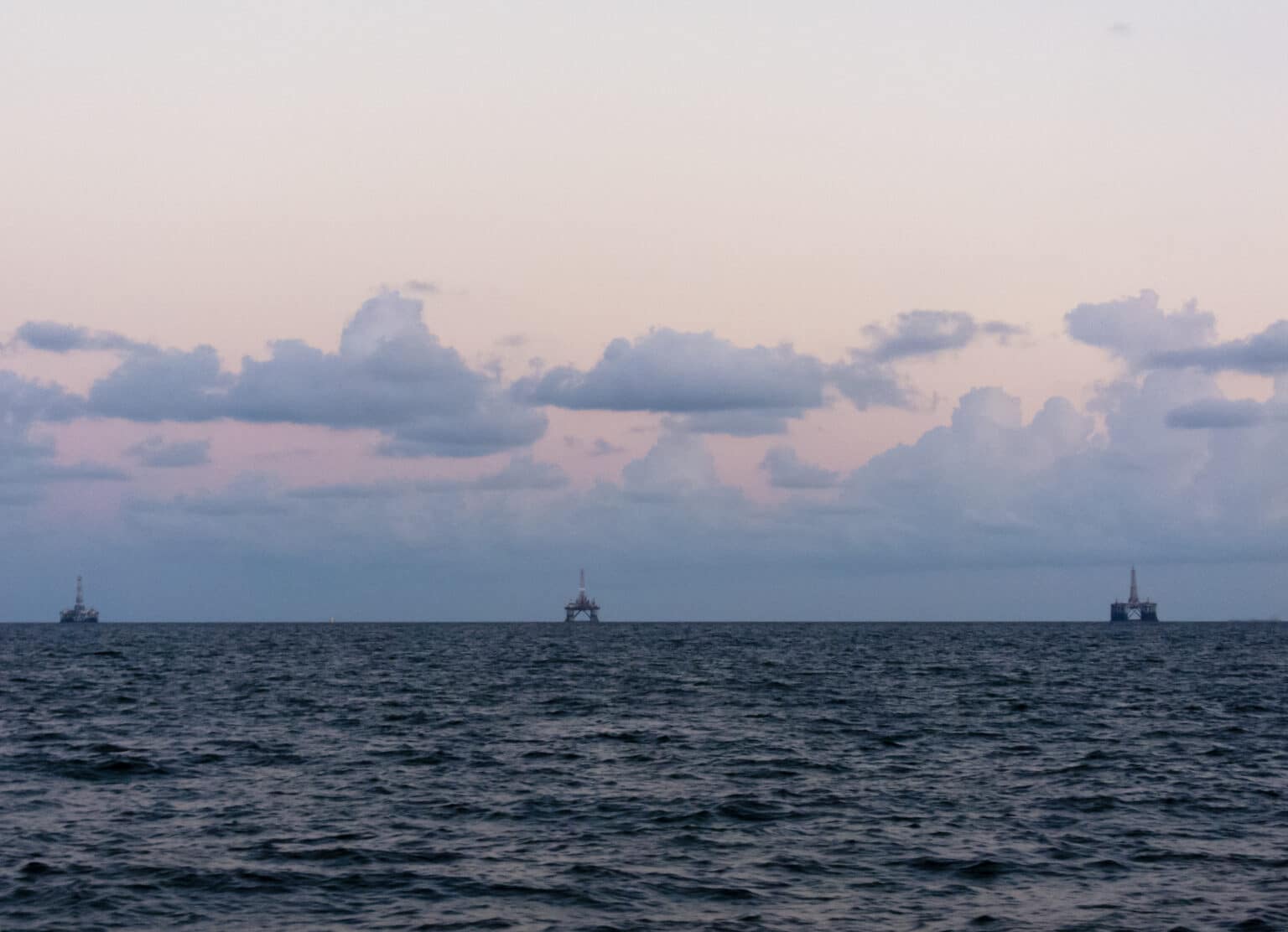A new investigation into federal oversight of the offshore oil and gas industry finds that the agency in charge is not enforcing existing regulations on environmental protection and cleanup in 97 percent of cases. The report puts attention on the growing issue of the oil and gas industry abandoning defunct pipelines and other drilling infrastructure and leaving the public with the cleanup bill.
Regulations already in place give the BSEE authority to “allow pipelines to be decommissioned-in-place if certain criteria are met,” the report notes. Although they were not meant to be applied to every situation, the result has been agency approval of nearly all industry requests to leave a pipeline behind. This “indicates that this is not an exception, however, but rather that decommissioning-in-place has been the norm for decades,” the GAO concludes.
Could this defacto policy of letting oil companies abandon pipelines in the Gulf of Mexico lead to environmental contamination? That seems highly likely, based on the GAO analysis, which found regulatory gaps “before, during, and after the decommissioning process.” To solve the problem, GAO recommends an overhaul of offshore pipeline regulations.
But Megan Milliken-Biven, a former BSEE employee, thinks that’s unnecessary. “You don’t need a law to be passed. You don’t need to change anything,” says Milliken-Biven. “The Secretary of the Interior can just say, ‘I want you to order all of these pipelines to be removed.’ She has the authority to do that.”
The GAO report agrees that current regulations clearly give the Secretary of the Interior the authority to make companies properly remove pipelines and “clear the seafloor of all associated obstructions created by lease operations.”
Since leaving the agency, Milliken-Biven has advocated for changes to the industry to address abandoned oil and gas infrastructure.
While federal regulations require removal of no longer in use pipelines, MMS and now BSEE have allowed companies to abandon in place for decades. There is quite a snake's nest of pipelines in the Gulf of Mexico – I heard estimates of in the tens of thousands of pipeline miles. 2/ pic.twitter.com/ERulDAr2j1
— Megan Milliken Biven🖖💫🐊 (@BayouTerrier) February 15, 2021
So the problem is known, the solutions are known, and adequate regulations exist. But the regulators simply refuse to hold the industry accountable.
While the phenomena of regulators failing to do their jobs to protect the public is commonly described as “regulatory capture,” instances of this behavior are so blatant and widespread across agencies and industries that it is hard to argue the system isn’t working the way it was meant to work.
In January, for example, Boeing was fined $2.5 billion for its role in fighting regulations (including simulator training requirements) for its new 737 Max airplane. Investigators found both Boeing and the Federal Aviation Administration at fault. According to in-depth reporting by Reuters, Boeing’s chief technical pilot simply would not accept safety regulations. “Boeing will not allow that [simulator training requirements] to happen,” said the pilot in an e-mail. “We’ll go face to face with any regulator who tries to make that a requirement.” Boeing won that argument, until two 737 Max planes crashed — one in 2018 in Indonesia and one in Ethiopia in 2019 — and hundreds of people died.
After the deadly 2010 Deepwater Horizon explosion and oil spill in the Gulf of Mexico, the Obama administration created new safeguards known as the “well control rule” to prevent similar offshore well disasters In 2019, the Trump administration revised the rule along industry-friendly lines, even though, as The Wall Street Journal reported at the time, regulatory staffers did not agree “that an industry-crafted protocol for managing well pressure was sufficient in all situations.”
My reporting on the issue of oil trains for DeSmog, resulted in my 2019 book “Bomb Trains.” The book’s main focus is the many ways the regulatory process is dominated by powerful industry lobbyists and fails to protect the public.
This story started in July 2013, with a deadly oil train explosion in Lac-Mégantic, Quebec, that killed 47 people and incinerated most of the downtown area. In the U.S., new safety regulations spurred by this disaster were published in 2015. I described them at the time as a “big win for oil and rail industries” as the regulations failed to address the real safety issues putting the public at risk, including reducing the volatility of the oil that created the bomb train issue and limiting train length.
Irving Oil fined 4 million pleading guilt 2013 Lac Megantic disaster https://t.co/HhTcKsoT2l. That lunch money for Irving. 47 souls died! pic.twitter.com/lAfCVT3DOP
— bmaggiemay (@bmaggiemay) October 26, 2017
Still, two new safety mandates actually made it through the process. One required new tank cars, although these have not proved to be a significant improvement over the old design. In a recent bomb train accident in Washington State, more than 100 of these new cars, filled with volatile oil, derailed while going only seven miles per hour, leading to an oil spill and fire that required the evacuation of the town of Custer.
The other update required oil trains to have modern braking systems. This was a major improvement that the Trump administration repealed in 2018 in response to industry pressure.
This latest GAO report seems unlikely to change anything. Audits like this find that the regulatory system is failing, then the failures get discussed, but outcomes that favor the public rarely result, because regulators don’t enforce the rules.
When asked for comment on the report, the BSEE responded that it “is reviewing the GAO report and its recommendation.” The agency stated that it began revising pipeline decommissioning regulations in March 2020, and will seek public comment on its proposed changes sometime in 2021.
“BSEE recognizes the importance of active pipeline integrity and is continually seeking to address the safety and environmental risks associated with decommissioning,” the agency’s statement said.
But if BSEE really did recognize the importance of addressing these risks, it would use its existing authority over offshore oil and gas operators to remove pipelines once they were done using them. But for decades this has rarely happened.
One GAO report is unlikely to shake the habit of regulators prioritizing corporate profits over all else.
But the report is a red flag that another round of changes to existing pipeline regulations may not be a solution. The reality is that the system is working as it was designed to work. It privatizes industry profits from drilling oil and gas in public offshore waters, and then sticks the public with the bill for cleaning up the messes left behind. Interior Secretary Deb Haaland already has the authority to make it a priority to change that status quo. Will she?
Subscribe to our newsletter
Stay up to date with DeSmog news and alerts







